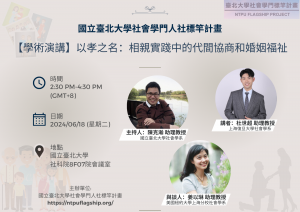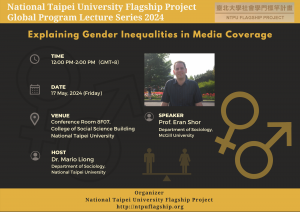


Professor Pasos is a respected scholar of social work at the University of the Philippines, and has worked with various governmental and non-governmental organisations to benefit Filipino children and families since 1990. This speech is focused on the current state of child labour in the Philippines, as well as both domestic and international efforts to address it.
A brief introduction to the Philippines equips us with the foundational information to better understand the issues faced by Filipino children. Whilst 16.6% percent of the population lives below poverty line, 31.4% of all children are considered in poverty, and 9% of all children have dropped out of school. On top of issues such as homelessness, petty crime, malnutrition, and child abuse, other issues related to the digital age have also escalated rapidly in recent years, such as online sexual exploitation and cyberbullying. Since the outbreak of COVID-19, online classes has made it even more difficult for some students to continue their schooling. The vulnerability of children, much less at-risk children, has made them easy targets of economic exploitation. Child labour is further defined by the conditions of work the child is subjected to. Apart from hazardous work that may endanger the child’s physical and mental wellbeing, any work that may interfere with the child’s development at all would be considered child labour. Out of the Philippines’ 29.02 million children, a shocking 18.9%—5.49 million children—are being subjected to labour, with almost all of them in dangerous conditions such as pyrotechnics factories and sugar cane plantations. Whilst a higher percentage of boys are recorded to be in hazardous work, girls—who often are in domestic work—are likely to suffer abuse at the hands of employers behind closed doors.
In adherence to the United Nation’s Convention of the Rights of the Child and the International Labour Organisation’s Declaration on Fundamental Principles and Rights at Work, the Philippine government sends a report on the country’s progress on child labour elimination every five years, and works closely with ILO representatives domestically. The driving force of this effort is the Philippines Program Against Child Labour, a nationwide strategy that seeks to unite agencies of the international, state and private level to work with local governments around the country, implementing purposefully designed policies and programs, aiming to completely eliminate child labour in the Philippines by 2022. On the local level, the program ABK3 LEAP, of which Dr. Pasos was project manager until its conclusion in 2016, works closely with local sugar cane plantations to ensure eradication of child labour from these hazardous conditions, and that out-ofschool children are returned to education. International support for ABK 3 LEAP is shown in the form of funding by the U.S. Department of Labour, and has made profound impact on local communities, even exceeding their initial target of removing 85% of child labourers from sugar cane plantations and putting them back in school.
ABK 3 LEAP’s Education Assistance is provided not only in financial support for those returning to public schooling, but also vocational training and alternative education modules that will reward students with the same level of certifications as those graduating from formal institutions. An after-school Catch-Up Program is also implemented, complete with specifically trained teachers, extra educational materials, advocacy training, and even “mobile schools” that made these resources even more accessible. These vehicles, equipped with computer sets, televisions, plenty of DVDs and art supplies, encourage children’s interest in school subjects outside of the conventional classroom. Teachers are able to utilise these vehicles to reach students in a livelier manner, and not only offer them supplements to formal education, but also life and entrepreneurial skills to further expand their abilities and opportunities. ABK 3 LEAP also provides local public schools with funds for the reparation of facilities, to provide children with safer and cleaner learning environments. Teachers already working in public schools are also provided with child labour advocacy training, to prevent students from leaving school in the first place; this was immensely successful as many teachers grew from enthusiastic participants to assertive organisers. Outside of school, Livelihood Assistance is provided to families to help them not only sustain themselves, but also grow their own small businesses and efficiently manage their household finances.
In addition to helping children out of child labour, ABK 3 LEAPs Capacity-Building, work with local governments to develop prevention policies, also proved successful. By establishing the Barangay Council for the Protection of Children (BCPC) in every area, they ensured that even after the program’s conclusion, local BCPCs will continue the work of preventing child labour and have the capacity to do so. Furthermore, Barangay Children’s Associations (BCAs) host Youth Camps and Trainings to equip children with the ability and knowledge base to advocate for themselves. Both strategies achieved or exceeded their targets. To demonstrate and verify the long-lasting impact of ABK 3 LEAP, three hundred Community Watch Groups (CWGs), along with parents, were trained to keep an eye on the children that left child labour after participating in these education programs, and deliver quarterly evaluation reports, in an effort to monitor the longterm success of the program, as well as the effects of education on the development of these children. Local government databases are also updated regularly.
To conclude, Dr. Pasos reflected on the collaboration required to eliminate child labour. Political will, central and local, must both be strong. However, those who are directly affected and those who benefit from child labour must also prove committed to the cause, without which these education programs and financial assistance strategies will ultimately collapse. In particular, the awareness and commitment of the children themselves, and their families, have the utmost influence in directly enforcing change. Finally, whilst the government, private institutions, and civil society have specific responsibilities to respond to, continuous collaborative efforts are required to position child labour prevention as a mainstream issue, and ensure sustainability of these child labour prevention programs in the Philippines.



